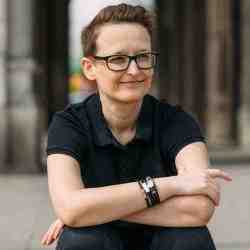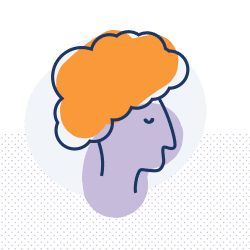Introduction
Teresa D'Amaral is fighting for citizenship rights for people with disabilities, creating a legally-mandated demand for employment and a locally-supported supply of skilled workers. Her institution also initiates a wide range of socialization programming for people with disabilities to integrate them into the community at large.
The New Idea
Teresa D'Amaral's organization, the Brazilian Institute to Defend People with Disabilities (IBDD) is unique in combining advocacy at the national level with the incubation of real working models at the local level. With the help of her staff, half of whom are people with disabilities, Teresa brings a deep knowledge of the national policy arena and a life-long dedication to the rights of the disabled to the operations of the IBDD, an organization which works both sides of the issue: government-mandated legal rights in employment and transportation with locally-supported civil rights to socialization and acceptance.
The Problem
Most organizations dedicated to disabilities in Brazil are focused on a particular type of disability. There is a great disconnect among the various parochial organizations, and few have been effective in influencing national policy.
Moreover, although there are laws on the books guaranteeing civil rights for people with disabilities, there is very little case law. Without precedents, it is extremely challenging for people with disabilities to demand their rights.
Guaranteeing civil rights for people with disabilities is a problem for civil society, not just for family members. Close to 15 million Brazilians are people with disabilities of some kind, mental or physical. According to official data, only 3% of people with disabilities receive some form of government or social assistance.
People with disabilities are not receiving adequate health care, education, and work preparation. Nearly two million Brazilians are shut in because of their disabilities, without even the minimal conditions of respect that human beings deserve. There are visually-impaired people without canes, amputees without crutches, parapalegics without wheelchairs, deaf people without any means of communication, mentally disabled people kept in total isolation. Although some companies are hiring people with disabilities, a lack of job training gives them a very small likelihood of entering formal work environments.
Although the legal and policy framework is changing slowly, the principle obstacle at the municipal and state levels is that this concern is not a priority for the state or for society, but rather a personal problem for the person with disabilities and his or her family.
The Strategy
Teresa's strategy has three facets: developing case law, facilitating employment, and providing social activities for people with disabilities.
With top-level judicial advice and a team of lawyers, some of whom are disabled, Teresa and the IBDD are seeking out key cases and establishing a body of case law at the state and federal levels. These precedents will help people with disabilities fight for their rights to fair and equal employment, transportation, health care, and education. The IBDD has a key relationship with the Brazilian Lawyers' Association of Rio de Janeiro. The Minister of the Supreme Court is cooperating with Teresa on ideal strategies to support and defend the legal rights of people with disabilities. He is helping her to create support services among attorneys. Large law firms are assisting the IBDD in the fight for human and legal rights via civil suits.
In the employment sphere, companies are being legally mandated to hire people with disabilities. To overcome the fact that the supply of adequately-trained workers is low, the IBDD is forming partnerships with companies to teach people with disabilities the skills in demand. Via a fee charged for the employment placement service, this strategy is also a way for the IBDD to sustain its administration. Today, the IBDD has formed strategic alliances with businesses such as Dataprev, Telemar, Embratel, and CEDAE. Contacts are being made with Telefonica, Interlig, and Motorola because these telecommunications companies are on the cutting edge of hiring people with disabilities.
The third facet of her strategy, providing social activities for people with disabilities, manifests itself mainly through sports. Especially in sports-crazy Brazil, athletic activities are a great source of pride for the community, a way to improve personal health, and an opportunity to socialize in groups of people with and without disabilities. Teresa's new headquarters will encompass Olympic-quality sports facilities. Teresa's idea is to open up the sports center to neighborhood residents who will pay a usage fee to maintain the center. Teams sponsored by the IBDD are now on their way to the Para-Olympic Games in Sydney, Australia. In the second half of the year 2000, the team will compete in two international competitions with financial support from Varig Airlines. The team is participating in the Peace Games in Rio.The IBDD has won victories in guaranteeing access. In partnership with the Rio de Janeiro Transportation Department, for example, places have been created for people with disabilities in public transportation stops on Largo do Machado. These stops serve both the clientele of IBDD and the general public. Raising awareness, the Sendas supermarket chain is now publishing information about people with disabilities on its grocery bags. A strategic alliance with Norton Publicists is allowing the IBDD to design a publicity campaign to launch and leverage the name of the IBDD as a brand. Marlin Internet has designed and set up a website for the IBDD.
To assist her administration, Teresa has created an informal Consulting Board, made up of key people to help IBDD consolidate its activities and projects.
A demographic research project is underway to determine the rate of disabilities in the municipality of Teresopolis. This project is a partnership among the IBDD, FAPERJ, and the Brazilian Academy of Sciences.
A new fundraising campaign, directed first at people who have already expressed interest and sensitivity toward the IBDD's issues, will allow citizens to become contributing members of the IBDD.
The IBDD is about to publish a book, called "The Boy" to stimulate consciousness-raising among students, families, and the community in general about social issues related to people with disabilities and respecting differences.
The Person
The challenges and joys of having a sister with cerebral palsy played a major role in Teresa's development as a person with a keen social conscience. Teresa comes from a politically-active family that embraced progressive thinkers and provided the children with opportunities to obtain higher education and to make contact with people from all echelons of society. Teresa remembers how included her sister with cerebral palsy was in every family activity; that loving acceptance colored Teresa's perceptions of the world.
After her sister died in adolescence, Teresa resolved to promote this caring attitude on a larger scale and thus pursued a university degree. The family suffered another loss when Teresa's brother was killed by street children. Teresa's father, one of Brazil's leading journalists and a founder of Veja, the country's most popular magazine, turned his efforts to designing and lobbying for legislation on incarceration of low-income youth.
Teresa followed her father's footsteps and worked with the Brazilian government for four years. She became a familiar face in the legislature and worked with the President and his staff on designing the Statute for People with Disabilities. Teresa created a national campaign for the integration of people with disabilities in order to fill the institutional lack that existed regarding special education. In the 1990's, however, Teresa decided to form the IBDD in order to follow her personal calling and to avoid depending on quickly-changing governments.




